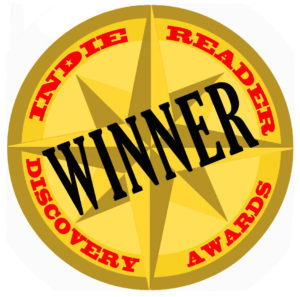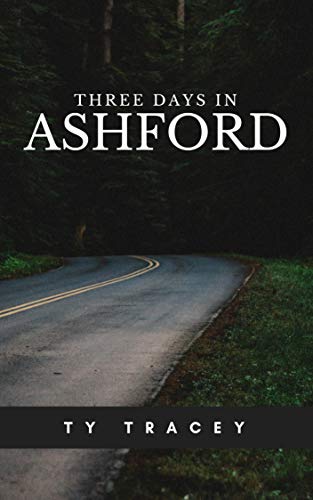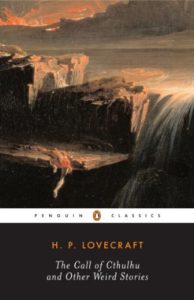
Three Days in Ashford was the winner in the Horror category of the 2019 IndieReader Discovery Awards, where undiscovered talent meets people with the power to make a difference.
[EDS NOTE: Three Days in Ashford was also named a finalist in the Paranormal category at the 2019/2020 Next Generation Indie Book Awards].
Following find an interview with author Ty Tracey.
What is the name of the book and when was it published?
Three Days in Ashford – October 5th, 2018.
What’s the book’s first line?
“I would rather be dead than go back there. Back to Ashford—the town that Satan calls home.”
What’s the book about? Give us the “pitch”.
Three Days in Ashford follows Daniel Hallowell and his eclectic crew of paranormal investigators as they begrudgingly travel to Ashford Ohio—a long abandoned town cut somewhere deep into the Ohio countryside. Once there, it quickly becomes obvious that what they face is something far more sinister than anything they could have ever prepared for.
As they struggle to unravel the terrifying truth that lies at the heart of the disturbances that plague Ashford, they find themselves hunted from within the deep, foreboding forests that surround them on every side.
Daniel, despite his every effort to resist, is pulled deeper down the rabbit hole, watching helplessly as his mind and sanity are slowly ripped away. He and his crew must embark on a journey across Ashford, across timelines and within the deep recesses of their own souls to uncover answers they otherwise would have never cared to know. Answers that will only serve to question the very psychological, physical, theological and philosophical meaning of our existence as a species.
However difficult to stomach, the only way to save themselves from the unimaginably savage force that threatens the very existence of humanity, is to decipher the riddle that haunts Ashford—the town that Satan calls home.
What inspired you to write the book? A particular person? An event?
There really is quite a hodgepodge of ‘things’ that inspired me to write Three Days in Ashford. Firstly, I’d watched a documentary on Netflix—“DMT, The Spirit Molecule” which focused on a bunch of cases of people given concentrated doses of DMT as part of a medical experiment, resulting in experiences that (at least according to them) allowed them to journey through the construct of their own souls.
The idea of the soul is something that absolutely fascinates me. For whatever reason, I can’t help but consume anything and everything I find on the evolution of the soul and the spirit realm. I’d known I wanted to use that information in some fashion as a horror writer, but I couldn’t piece together how to do it. Watching that documentary got me on the right track.
Around the same time, I knew I wanted to write something around the old ghost stories we used to tell each other as kids. Where I grew up, there was one major story that we all found absolutely terrifying anytime the older kids would speak of it. Without giving any of my book away, we couldn’t bring ourselves to go anywhere near the woods for a week anytime we were told this story. This was a real issue since it was a rural community with forest in every direction. I knew I wanted to capture that element of fear in my writing and try my best to pass that along to the reader.
So, it really was a fusion of those two completely disjointed concepts that gave me the basis for Three Days in Ashford and served as its inspiration.
What’s the most distinctive thing about the main character? Who-real or fictional-would you say the character reminds you of?
Daniel Hallowell is a complex, loyal, rags-to-riches man. Throughout the course of his life he’s had nothing at times and had everything at times. The majority of Three Days in Ashford is written in the first person from his point of view. While lovable, there’s elements of a smartass kid from South Boston but at the same time there’s elements of a true leader and pioneer in the paranormal investigation industry. A part of the story is how he is forced to come to grips with that duality within himself and it’s something that I can personally identify with. Daniel has a big place in my heart.
As far as a fictional comparison, he is kind of a hybrid between Peter Venkman from Ghostbusters (Bill Murray’s character) and Billy Costigan from The Departed (Leonardo DiCaprio’s character).
What’s the main reason someone should really read this book?
My sole charge while writing Three Days in Ashford (and anything I write) is to give the reader something that will terrify as well as fascinate them in equal parts. To me, truly scary stories are molded around a rich and (at least loosely) plausible plot. In short, it’s not just a scary story, it’s a good, intriguing story that is, at the same time, terrifying.
If they made your book into a movie, who would you like to see play the main character(s)?
Daniel Hallowell – Josh Holloway (Sawyer from LOST)
Ricky Voss – Zach Efron
Gary Jenkins – Zach Galifianakis
Big Bear – John Cena
Anunit – Jennifer Lawrence
When did you first decide to become an author?
I’ve been writing scary stories since I was old enough to put a few sentences together. For whatever reason, I’ve just always loved reading and writing. I had my fair share of heroes throughout my life but, unlike most of my friends, I held people like Jules Verne atop my pedestal. Most of my friends growing up wanted to ‘be like Mike’ but I wanted to be like, Edward Stratemeyer.
Is this the first you’ve written?
I’ve written a lot, but Three Days in Ashford is my first published work. I wrote an entire novel prior to Ashford but never attempted to publish it, even though its premise is probably the best I’ve ever conceived of. I hold the quality of my work, in every aspect of my life, to a very high standard. And I just couldn’t ever get that original novel to a point where I was comfortable with publishing it out to the world. I learned the hard way that writing a novel is incredibly hard and requires a monumental level of dedication to an appropriate process. I knew very little about any of this as I wrote the first novel, and the results illustrated that fact.
The silver lining of the whole experience, however, is that I was able to apply those lessons and alter my process into the one I use today. It’s those hard lessons that made Three Days in Ashford possible. Those lessons allowed me to produce a novel that I could feel good about people paying their hard-earned money to consume.
What do you do for work when you’re not writing?
I work in operations in the tech industry, mostly automating things that suck for human beings to have to do manually. I greatly prefer writing.
How much time do you generally spend on your writing?
As much as I possibly can. I’m married, work a normal job and am raising a beloved pit bull. So, my time to write is thin but it truly is my favorite hobby. If given the opportunity, I’m pretty sure that I could just write indefinitely if I could just get rid of these pesky bills.
What’s the best and the hardest part of being an indie?
The best thing about being an indie to me is the fact that so many talented people can get their stories out there. If you have a story to share with the world, you have a platform available to you to do so. This wasn’t always the case and I think it’s one of the greatest examples of all time of technology and art coming together to produce something truly wonderful. I’m thrilled to be a small part of that.
The worst thing about being an Indie: The leap of faith you take when you self-publish something. Most of the time the only validation you have for your work is your own or that of your friends and family. And of course, your friends and family are going to give you positive feedback. But you really have no idea how the world is going to receive it. You’re blindly publishing something that you’ve poured the sweat of your life into, over the course of years in many cases. So, it really is a terrifying leap of faith.
What’s a great piece of advice that you can share with fellow indie authors?
A good author friend of mine once asked me, as I was in the middle of writing Three Days in Ashford and was at a point where I was beginning to touch on some religious topics that I thought might offend people: “Do you think Stephen King was worried about offending people when he wrote, Carrie?”
That was some profound advice to me. Anyone who has read Carrie knows that there are some pieces of that story that took some serious bravery to write and publish on Stephen Kings part. And it wouldn’t be nearly as transcendent of a novel as it is without those elements.
My takeaway was: This is my story and it needs this element, so I’m keeping it. If I get rid of it, then its not my story anymore. Instead, it’s an “edited for local television” version of my real story.
Would you go traditional if a publisher came calling? If so, why?
I would have to really understand the terms of the agreement, but once I did, I probably would. Self-publishing and distributing your work to the larger audience and marketing your work on your own is so expensive at every step. Royalty percentages are bad either way so it can’t hurt to have some of the distribution, editing, marketing cost taken off your shoulders by a publisher.
I haven’t spent a great deal of time truly thinking about the possibility of working with a publisher but their ability to distribute really intrigues me. For instance, I’ve had quite a few people from non-English speaking countries inquire about translating Three Days in Ashford into their languages. And I would absolutely love to do so, however, having that done is wildly expensive and in many cases unreliable (The messaging throughout a novel will not always translate properly if translated poorly). So, this is another problem that publishers have experience solving that I don’t.
Is there something in particular that motivates you (fame? fortune? more sex?)
Ha! Yes… to… all! In all seriousness, none of the above are primary motivators for me. My main motivation in writing (and this is going to sound cheesy) is the idea of producing something that will be around for people to consume long after I’ve kicked over.
That might sound morbid but I think sometimes about how incredible it would have been if my grandmother or grandfather had written something (published/unpublished, who cares…) and I found it on some shelf and was suddenly presented with a piece of them that I’d never known about—a portal into their creative minds that I otherwise couldn’t have ever known. At that point, every picture and memory of them takes on a far richer, deeper meaning. That really is in the back of my mind most of the time I’m writing—some future Tracey finding something I’ve written and him or her getting to know me through something I conjured up decades previously.
Which writer, living or dead, do you most admire?
I really admire H. P. Lovecraft. He wrote his entire life, and nobody recognized how great his writing was until he was dead. But that never stopped him while he was alive. Everything he ever wrote was purely motivated by his own wild creativity. His Cthulhu Mythos was lightyears ahead of its time in my opinion. When he was penning down his nightmares, I’m not even sure there was much of a market for his work at the time of it’s writing. But that never stopped him either. The man was pure creative perseverance and I truly admire him for it.
Which book do you wish you could have written?
I’m not sure if this is a cop out, but I’m going to list a few:
I wish I could write “a novel” in the beautifully minimalistic prose of Neil Gaiman’s The Ocean at End of the Lane, with the character development mastery of J.K. Rowling’s Harry Potter novels, the meticulously researched and perfectly structured plot of Michael Crichton’s Prey and that slow-burn buildup of horror that Stephen King wrote into The Stand.
Hell, I wish anybody would write that book.

